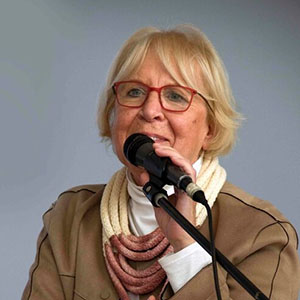
Anna Karali
Country: Greece
Organization: Hellenic Focusing Center
Short CV
Anna Karali, B.A., Pg.Dip., ECP, psychotherapist, supervisor and trainer for Client-Centred and Focusing Oriented Therapy. Co-founder & co-director of the Hellenic Focusing Center, in Athens, which introduced and established, in Greece (2001), the first training program for Psychotherapists in Focusing Experiential Therapy (FOT). Certified Coordinator for the International Focusing Institute on New York (2002). Founding member of the Hellenic Association for Person-centered & Experiential Approach (HAPCEA) and the European Focusing Association (ΕFA).
Short presentation
Title: Polyphony: A challenging movement in psychotherapy
In this presentation we will first argue that psychotherapy, in its conversational practice, is often characterized by a sterile language expanding in incongruent (Rogers, C.R. 1959, 80) or structured bound, difficult/fragile processes (Gendlin, E.T. 1964, 2017). Evidently, this limitation suppresses client’s other ‘voices’, and turns the therapeutic language to be monologic and blocked in one perspective. Another feature that this work will attempt to illuminate is the excessive attunement between therapist and client, an issue that might likewise cause the emergence of a unique, monothematic speech that could limit client’s potential for inner reflection, by keeping him tied to the ‘client’s role’. Drawing from these substantial observations, the plurality of therapeutic dialogue will be encouraged, as it apparently provides new narratives and new meanings by creating a never-ending dialogue that embraces various voices, where none is more important than other, and may largely facilitate the client’s carrying forward experiential process (Gendlin, E.T. 1973). To conclude, there will be extensive references to how the ability to ‘pause’ the on-going situation creates an inner space in which a bodily felt sense can form so that new personal meanings may be articulated (Gendlin, E.T. 2006). These new fresh meanings will hopefully enhance the psychotherapy’s process, as they may free the client from being manipulated by external authority, cultural roles, ideologies and mostly his inner oppression of self-attacking and shame (Hendricks-Gendlin, M. 2003).

